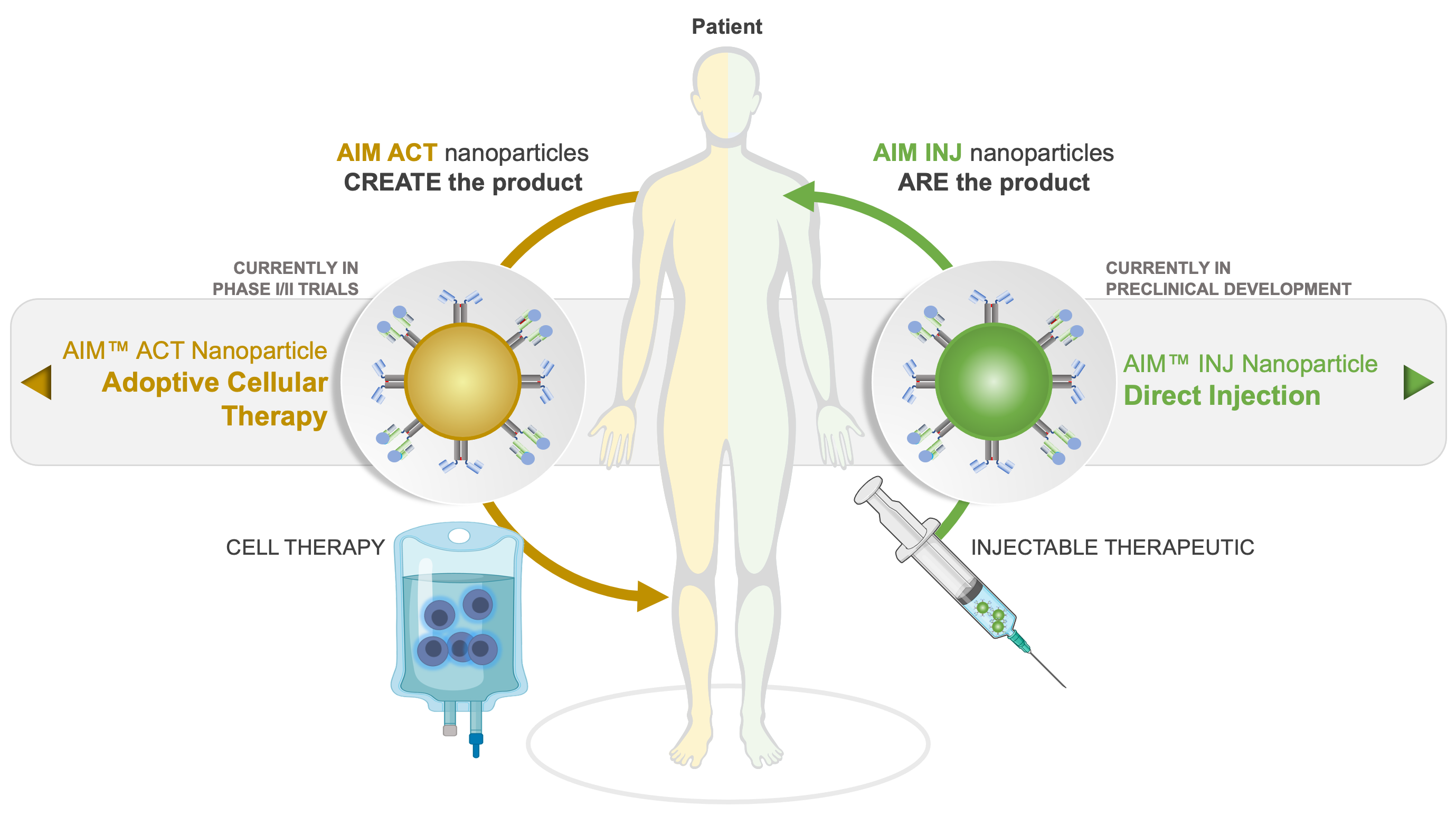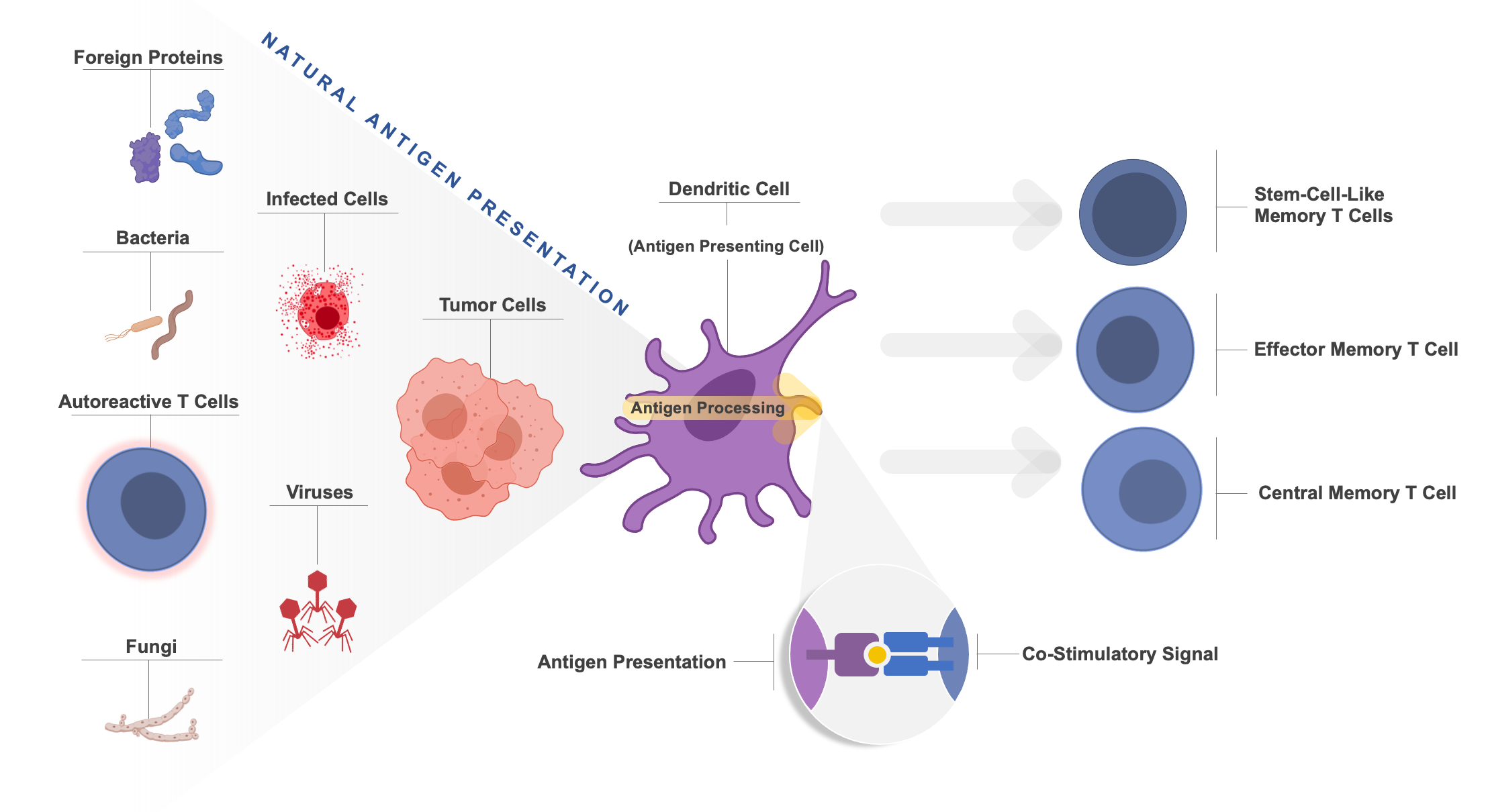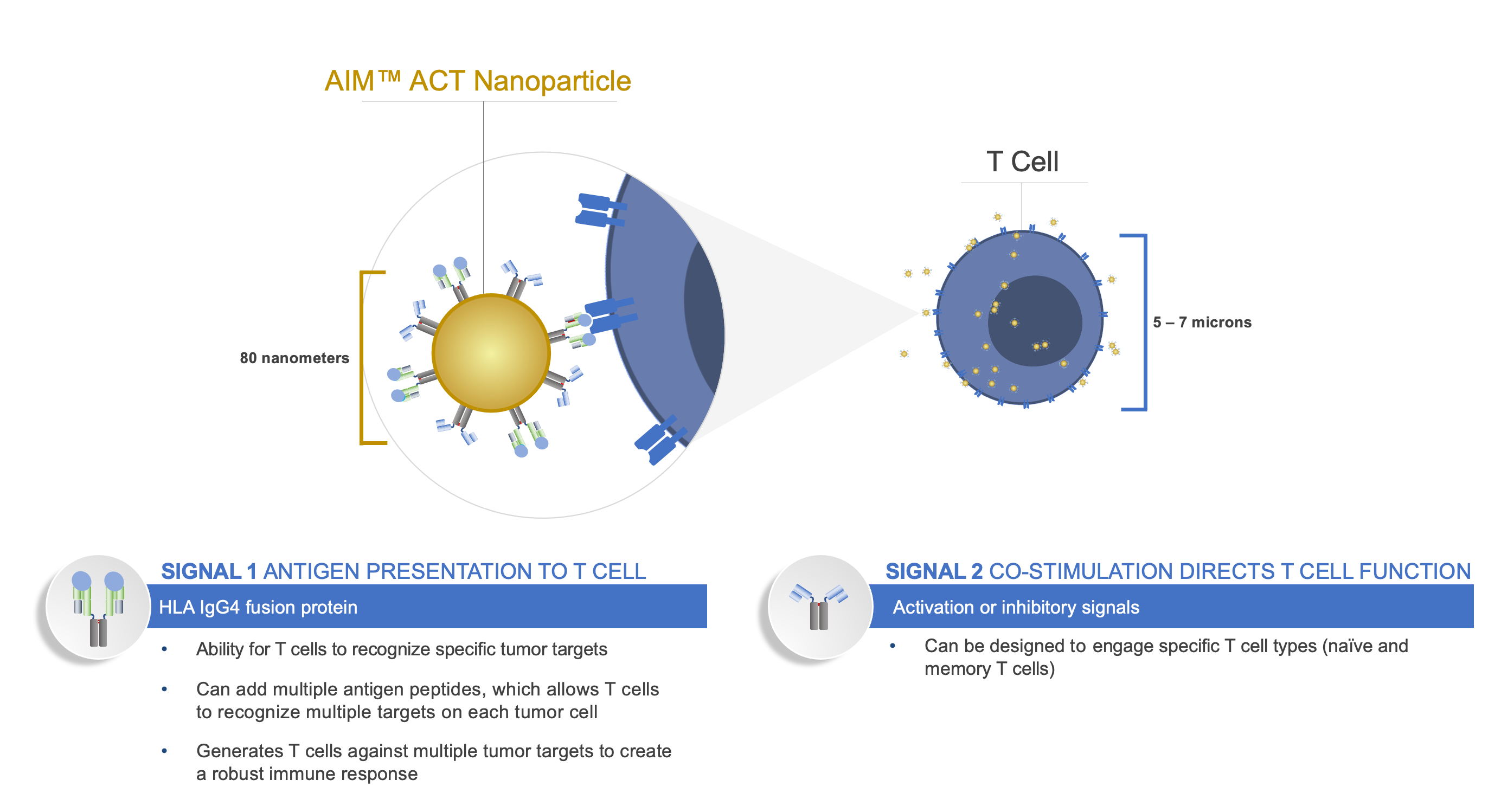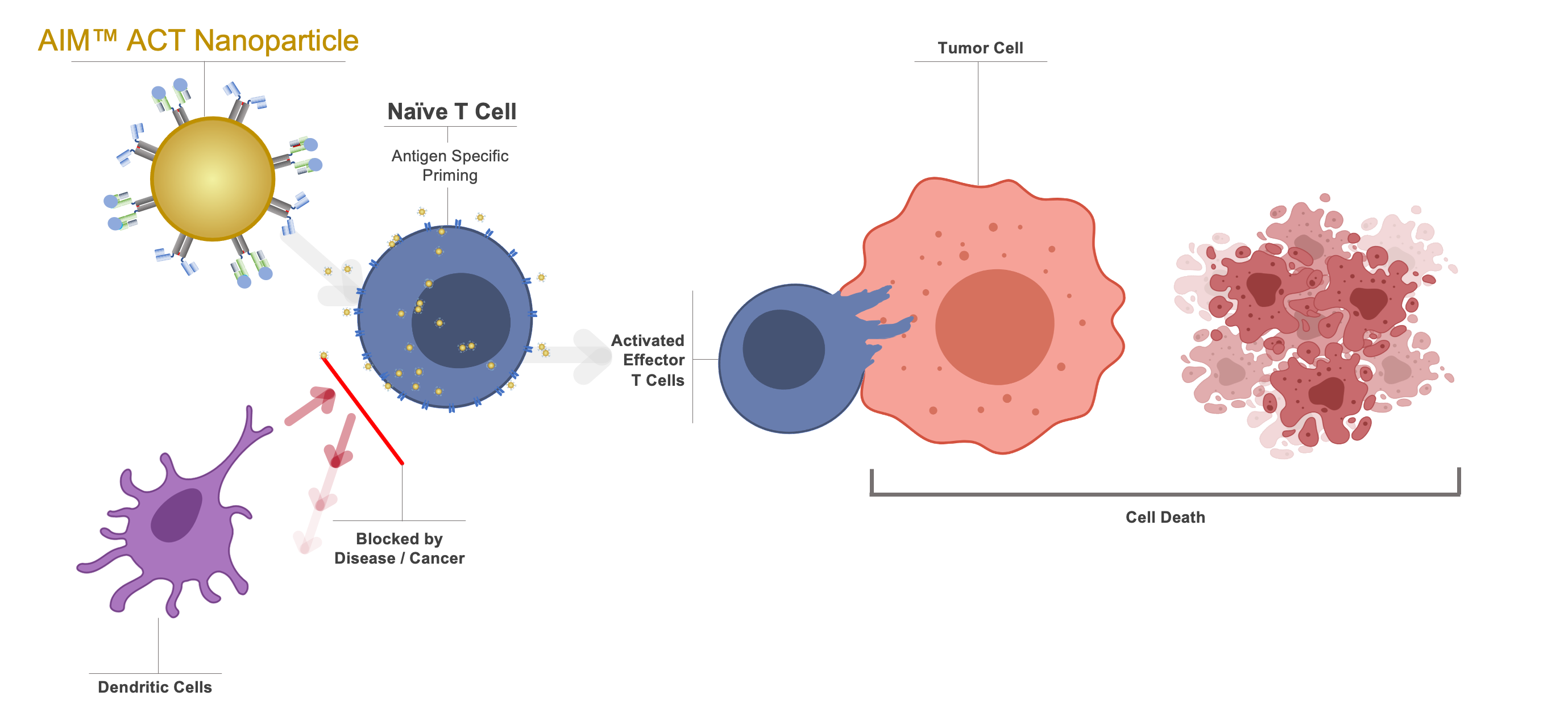Our Technology: Orchestrating T Cell Function to Fight Cancer and Other Diseases
NexImmune’s precision technology and unique scientific approach offer promise in restoring hope for patients suffering from cancer and immune-mediated diseases by directing specific immune responses to target and attack those cells causing disease.
The foundation of our unique approach focuses on modulating the role that T cells play within the immune system. Our proprietary nanotechnology platform, Artificial Immune Modulation (AIM™), employs natural biology to direct specific T cell-mediated immune responses capable of treating a variety of diseases.
T cells are the “foot soldiers” of the immune system. Their role is to identify, engage, and destroy diseased cells within our bodies. Each T cell requires a specific set of instructions, otherwise the T cell is incapable of performing its critical immune function. These instructions are provided through very specific signaling proteins and are normally delivered to the T cell by dendritic cells. In many diseases, the dendritic cell becomes dysfunctional and is no longer able to direct healthy T cell function, and the immune system breaks down.
The AIM technology enables us to construct “synthetic dendritic cells,” in the form of AIM nanoparticles, which are capable of directing a specific T cell-mediated immune response. Mimicking dendritic cells, the AIM nanoparticles employ natural signaling proteins to deliver specific instructions to T cells that direct a desired immune response. Importantly, unlike other cell therapy approaches, this is accomplished without any genetic manipulation of the T cell, thereby creating T cell products that should maintain natural target identification, engagement, and killing mechanisms.

These key differences enable the production of T cell product candidates designed to combine the beneficial attributes of cellular precision, potency and persistence without the potential for undesired toxicities. This is a significant advantage of the AIM platform and our therapeutic product candidates compared to other T cell therapies.
Currently, we have two product candidates in Phase 1/2 clinical development: NEXI-001 in acute myeloid leukemia (AML), and NEXI-002 in multiple myeloma (MM).
Here’s a closer look at how AIM™ technology works:
Addressing Impaired Dendritic Cell Function: natural antigen presenting cells (APCs), such as dendritic cells, play a critical role in the body’s immune system as they prime, activate and direct other immune system cells, including T cells, in orchestrated attacks against specifically targeted antigens and cells. However, the communication between dendritic cells and the immune system can become impaired through pre-treatment and underlying disease.
Dendritic cells are highly specialized immune cells that, under normal conditions, act to control and direct the body’s immune system. They have the ability to educate, activate and direct other specialized immune cells (T cells) to identify, engage and kill diseased cells (e.g., tumor cells and virally infected cells). When patients suffer disease, their dendritic cells often become dysfunctional and lose their ability to effectively control the immune system; they can no longer direct an immune attack against invading pathogens and / or malignant cells.

Our proprietary AIM™ technology has been designed to drive specific immune system responses in a highly controllable and reproducible way — independent of the functional effectiveness or abundance of the patient’s natural dendritic cell population.
Three “Ps” underpin the AIM clinical promise in treating cancer:
Artificial Antigen Presenting Cells: The pioneering work of our scientific co-founders Mathias Oelke and Jonathan Schneck (Oelke and Schneck 2003 and 2010) forms the basis of our efforts to develop AIM nanoparticles. These AIM nanoparticles are designed to mimic the immune functions of natural antigen presenting cells, such as dendritic cells, by delivering two key immune-directing T cell signals: (i) an antigen-specific recognition signal delivered by a major histocompatibility complex (HLA) molecule loaded with an antigenic peptide (Signal 1), and (ii) a co-stimulatory signal to direct T cell function (Signal 2).

AIM™ Nanoparticles Directly Engage and Activate T Cell Function: Following antigen-specific activation, T cells undergo clonal selection and become either memory cells or cytotoxic effector cells. Effector cells are activated and perform cytotoxic killing of target cells, in part through the release of cytotoxic granules.

The AIM nanoparticles’ unique mechanism of action (MOA) optimizes endogenous T cells for maximum therapeutic effect and reinvigoration of natural immunity. Even when the dendritic cell is dysfunctional, the AIM nanoparticles can deliver critical natural signals to the T cell.